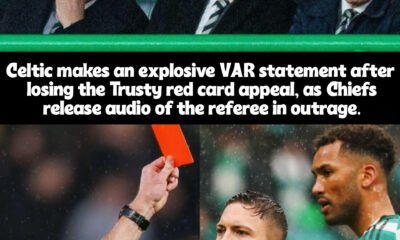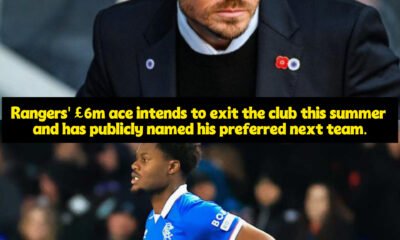Blog
Led Zeppelin at the O2 Arena: The Night the Gods Returned
On December 10, 2007, something extraordinary happened in London. At the O2 Arena, under a sky thick with anticipation and reverence, the surviving members of Led Zeppelin walked onto a stage they hadn’t shared in nearly three decades. What followed was not just a concert. It was a seismic cultural event, a thunderous revival, and a night that proved—without a shred of doubt—that legends never fade. They merely wait. The atmosphere inside the venue was electric long before the first note rang out. Nearly 20 million people had applied for tickets through an online lottery, and only 20,000 got in. These weren’t just fans—they were pilgrims. Some had traveled across oceans. Others had waited their whole adult lives for a moment they thought would never come. The buildup was intense. The expectations, immense. But the second Jimmy Page struck the opening chords of “Good Times Bad Times,” the entire arena detonated into sound, tears, screams, and disbelief. From that moment on, it was clear: this wasn’t a nostalgic cash grab. This was Led Zeppelin, fully alive, ferociously present, and ready to reclaim the crown they had never truly lost.
Jason Bonham, stepping into the seat of his father, the late and irreplaceable John Bonham, did far more than play the drums—he summoned the spirit of his bloodline. His playing was thunderous and precise, channeling the primal energy that defined Zeppelin’s sound. There were no apologies for youth, no hesitation—Jason belonged up there. The look of pride exchanged between him and Plant during the performance of “Black Dog” was one of the night’s most moving moments. It was both symbolic and literal: the torch had been passed, and it burned just as brightly. Jimmy Page, then 63 years old, played with fire in his fingertips. Every riff, every slide, every solo was executed with surgical passion. When he took center stage during “Dazed and Confused,” bow in hand, lights slicing through smoke, it was as if the ‘70s had never ended. His guitar became a weapon of mysticism and raw power, and the crowd surrendered to its spell. Page didn’t just play music—he conjured it, bending time and physics with his Les Paul and his sorcery.
Robert Plant, the golden god himself, showed remarkable poise. He didn’t try to replicate the unrestrained shrieks of his youth. Instead, he brought gravity, grace, and a voice still loaded with soul and thunder. He knew what the crowd wanted, but he also knew how to deliver it with maturity and power. On “Since I’ve Been Loving You,” his vocals soared and dipped like a stormy blues tide. On “Kashmir,” he became a prophet, commanding the audience like a man possessed. His presence was magnetic—every step, every expression, every wail had the aura of a frontman who was not performing but testifying. And then there was John Paul Jones, the quiet architect of the Zeppelin sound. On keyboards, bass, and mandolin, he brought texture, harmony, and structure to the chaos. Without Jones, there is no Zeppelin. His work on “No Quarter” was otherworldly—haunting, gorgeous, and mystifying. His stoic demeanor contrasted with the fiery energy around him, but that only made his performance more vital. He was the anchor in the storm, the secret weapon that held the entire machine together.
The setlist was a dream. From the explosive “Ramble On” to the roaring grooves of “Trampled Under Foot,” every song was met with feverish applause. “Stairway to Heaven” nearly caused the roof to lift from the arena—thousands of voices singing in unison, tears running down cheeks, phones shaking in hands. There are few moments in music history that transcend performance and become myth. This was one. “Whole Lotta Love” and “Rock and Roll” closed the night with unrelenting force, cementing the feeling that something divine had occurred. Critics tried to capture it in reviews, calling it “miraculous,” “an earth-shaking return,” and “the greatest one-night stand in rock history.” Fans who were lucky enough to witness it knew better—it wasn’t just a comeback. It was the gods returning to walk among mortals for one last fire-breathing roar.
What makes the O2 reunion so unforgettable is not just the musicianship or the setlist, but the emotional weight behind it. Led Zeppelin had not played a full set together since the death of John Bonham in 1980. The bond between them, fractured by grief and time, had been dormant. But on that night, it was healed, if only for a few transcendent hours. They weren’t pretending to be the young men of the 1970s—they were embracing who they had become, and in doing so, they proved that true artistry doesn’t age. It evolves, it deepens, and when summoned, it explodes like a long-dormant volcano.
In the years since the performance, fans have clamored for a full tour, a live album, or even an official film release. Only the Celebration Day concert film and live album, released in 2012, have emerged from that iconic night. While it captured much of the magic, nothing could replicate the feeling of actually being there—of standing in a room where history was not just being remembered, but rewritten in real time.
The O2 Arena show was more than music—it was vindication. It showed the world that Led Zeppelin’s legacy wasn’t built on hype or mystique, but on brilliance, chemistry, and the kind of musical alchemy that comes around once in a generation, if that. It reminded everyone that even after silence, after time, after unimaginable loss, the band could still light the world on fire. Not many artists can reunite after decades and deliver something worthy of their prime. Led Zeppelin didn’t just meet expectations—they obliterated them.
The echoes of that night still ripple through rock culture today. Artists who weren’t even born when Zeppelin first disbanded cite it as a pivotal moment in their lives. Younger fans continue to discover the footage and find themselves stunned that such raw, real, unfiltered power could still exist in an era of overproduced music and auto-tuned performances. That’s the magic of Zeppelin—they don’t just play music. They awaken something ancient and electric inside people.
So yes, the night Led Zeppelin returned at the O2 wasn’t just a concert. It was an event—a testament to timelessness, to spirit, and to the enduring flame of four men who changed music forever. And on that December night in London, they proved, unequivocally, that rock and roll was not only alive—it was immortal.
“THE GODS HAVE RETURNED”: LED ZEPPELIN REUNITES AFTER 27 YEARS — AND REDEFINES ROCK REBIRTH
Rolling Stone Exclusive
It wasn’t just another night in rock and roll history. It was the resurrection. The moment the heavens cracked open and music’s most mythic band emerged—not as a nostalgic act, but as a force reborn. After 27 long, silent years, Led Zeppelin—Robert Plant, Jimmy Page, and John Paul Jones—stepped back onto the stage. Not to coast on legacy. Not to whisper. But to roar.
From the first heartbeat of “Kashmir,” it was clear: this was no tribute to the past. This was a storm summoned in real-time. The riff hit like prophecy, as if carved from thunder and flame. Fans didn’t just react—they unraveled. Some screamed. Others wept. Many just stood frozen, caught between disbelief and awe, as the unthinkable became undeniable.
And then came the moment that stitched together time itself—Jason Bonham behind the drums, filling the shadow once held by his father, the late and immortal John Bonham. It wasn’t just symbolic. It was spiritual. With every pounding strike, Jason didn’t just honor his bloodline—he channeled it. The spirit of Bonzo lived in every cymbal crash, every explosive beat. The arena didn’t just shake—it soared.
You could see it in their eyes—Plant locking glances with Page, Jones grinning like a man who never left the groove. This wasn’t a greatest hits routine. This was communion. Reclamation. Proof that decades apart hadn’t dulled the blade, but sharpened it.
Robert Plant’s voice, aged and raw, was no less powerful—if anything, it had grown deeper, heavier, infused with the weight of time and soul. He didn’t try to mimic the past. He sang through it, elevating lyrics that had once defined youth into something timeless, wise, and urgent. He wasn’t just a frontman. He was a prophet, howling into the void and daring it to respond.
Jimmy Page—guitar slung low, fingers ablaze—played with the ferocity of a man with nothing left to prove but everything left to say. Solos that once stirred stadiums now summoned spirits. He didn’t play for applause. He played like a man possessed. Notes weren’t just heard—they were etched into the bones of everyone present.
And John Paul Jones—quiet, steadfast, the anchor of Zeppelin’s storm—brought the magic only he could. His bass thundered like tectonic plates shifting beneath the earth. His keys added ghostly texture, subtle and essential, the unsung melody to a saga reborn.
The chemistry? Unmistakable. The emotion? Overwhelming. This wasn’t about nostalgia. It wasn’t about dusting off old myths. It was about answering a call from somewhere deep in the collective soul of rock. A reminder that some flames never die—they simply wait for breath to reignite them.
The audience—20,000 strong—transcended fandom. They became part of the ritual. Grown men sobbed. Younger fans, who’d only known Zeppelin through headphones and hand-me-down records, stood transformed, witnessing gods made flesh. For one night, there were no generations—only one tribe, united under riffs and rhythm.
Led Zeppelin didn’t just perform. They reclaimed the throne. With a set that rippled through time, they offered more than music—they offered testimony. That true artistry doesn’t age. That real bands don’t break—they hibernate, biding their time. And when the moment is right, they return—not as echoes, but as earthquakes.
This reunion wasn’t just about Zeppelin. It was about what’s still possible. About reminding us that in a world of fleeting fame and digital noise, there remains something sacred in four musicians standing together, locked in a moment, pouring everything into the air.
So when the last chord rang out—when Plant raised his hand, and the house lights dimmed—there was no goodbye. No farewell. Just a shared, stunned silence. Because how do you applaud a resurrection?
Led Zeppelin has returned. Not for the cameras. Not for the charts. For the music. For the myth. For the moment.
And now, nothing in rock will ever be the same again.
-

 Blog2 days ago
Blog2 days agoCeltic issues a fiery VAR statement after Trusty’s red card appeal is dismissed, as furious chiefs release referee audio publicly.
-

 Blog2 weeks ago
Blog2 weeks agoCeltic informed their January signing under Martin O’Neill that he wouldn’t play a single minute this season.
-

 Blog2 days ago
Blog2 days agoCeltic issued an £83 million warning amid looming UEFA threats.
-

 Blog9 months ago
Blog9 months ago“Courtside to Aisle-Side: Tyrese Haliburton and Jade Jones Set New Wedding Date”
-

 Blog5 days ago
Blog5 days ago£6m star is looking to leave Rangers this summer and has already announced his next club publicly.
-

 Blog4 days ago
Blog4 days agoAuston Trusty under intense Celtic red card investigation amid new Hibs ‘punch’ claims and Rangers’ appeal review.
-

 Blog2 weeks ago
Blog2 weeks agoKyogo perceives Celtic’s transfer veto as a fresh insult as the striker is overlooked by Birmingham’s new boss.
-

 Blog9 months ago
Blog9 months agoPat Kelsey sends a strong three-word fiery message to the Louisville basketball’s team after their Cardinals 14th win…
